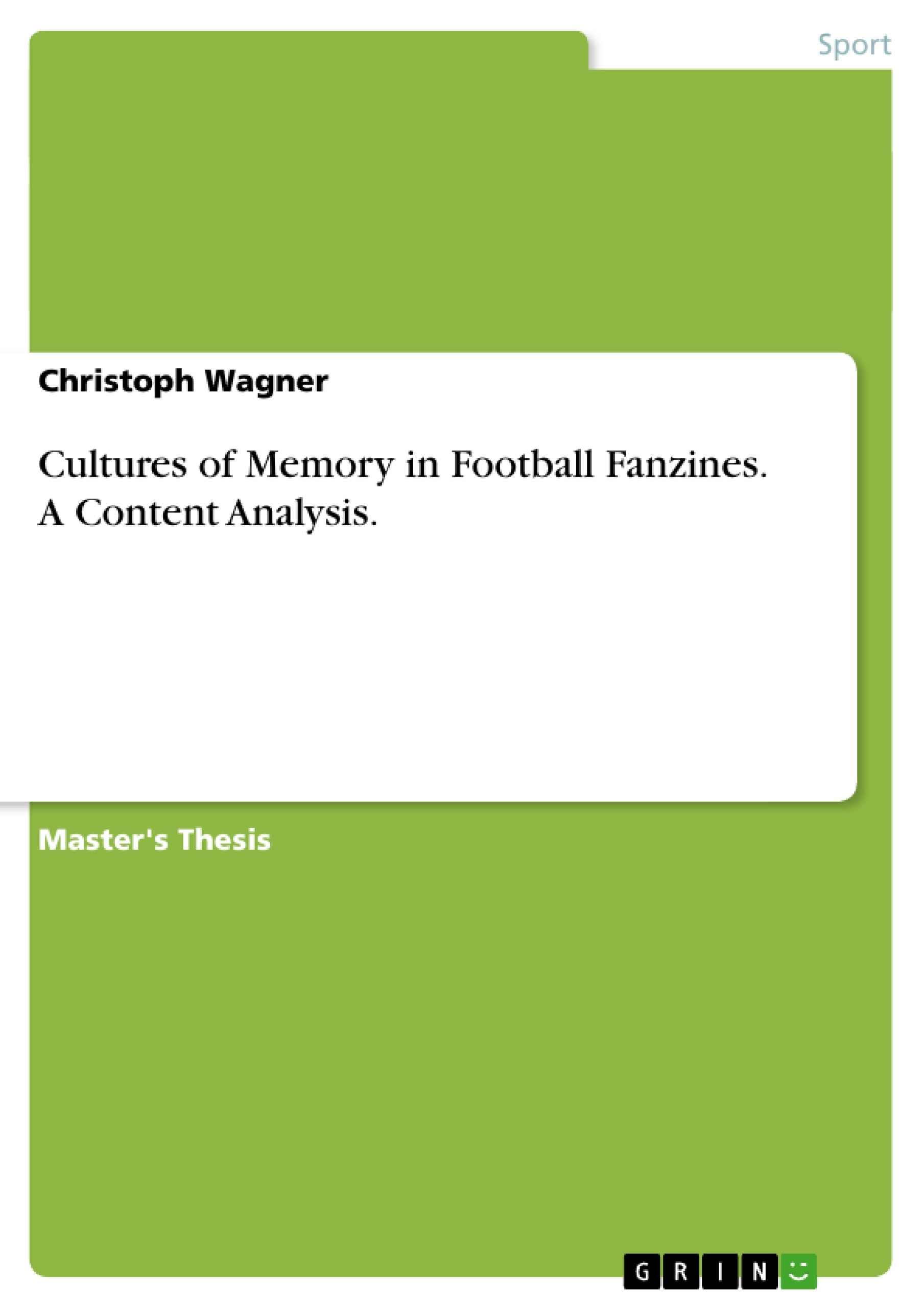Abstract
The increasing insecurity in English society is countered by a resurgence of nostalgia and remembering the old times. This phenomenon can be found in football, too, but it differs from the need for nostalgia that is visible in society. High Street shops like Past Times are hugely successful in selling commodities that remember the English Commonwealth with goods from the countries that once belonged to it. Also, this becomes visible by the many replica items of daily life that are designed in a retro style but contain modern technology such as radios, watches, alarm clocks and furniture. Football fans can purchase replica shirts of their favourite club from the seventies and even earlier.
In the field of football, the introduction of the Premier League in England has ultimately changed the face of football. Football was commodified and has become the most successful part of the entertainment industry.
In the wake of the Heysel and Hillsborough disasters football fans got active themselves and started to publish football fanzines as a reaction to the general condemnation they had to endure. In these outlets they mostly opposed the view that every football fan is a hooligan. They also used football fanzines as a platform to remember their heroes and glories of eras long gone. For this reason cultures of memory did become a part of football fanzines and did so very vividly.
Inhaltsverzeichnis (Table of Contents)
- Abstract
- Author's Declaration and Note on Translations
- Acknowledgements
- 1. Introduction
- 2. Literature Review
- 2.1. Literature on fans and fanzines
- 2.2. Literature on theories
- 3. Research Methods
- 3.1. On Methods
- 3.2. Research Design
- 4. Results
- 5. Discussion
- 6. Conclusion
- 7. Bibliography
Zielsetzung und Themenschwerpunkte (Objectives and Key Themes)
This dissertation examines the emergence and development of football fanzines in England, specifically focusing on their role in fostering cultures of memory. The research analyzes how fanzines have become a platform for fans to express nostalgia and remember their heroes and the glories of past eras, particularly in response to the significant changes within the football industry. * **Nostalgia and Cultural Memory:** Exploring how football fanzines serve as outlets for nostalgia and the construction of collective memory among fans. * **The Impact of the Premier League:** Analyzing how the introduction of the Premier League influenced fan culture and contributed to the rise of fanzines. * **Counter-Narrative to Hooliganism:** Examining how fanzines challenged the stereotype of football fans as hooligans by providing alternative perspectives and narratives. * **Fan Identity and Subculture:** Investigating how fanzines contribute to the formation and expression of fan identity and subculture. * **The Role of Fan-Produced Media:** Exploring the significance of fanzines as a form of fan-produced media, offering a platform for fan participation and engagement.Zusammenfassung der Kapitel (Chapter Summaries)
- **Chapter 1: Introduction:** Introduces the study, providing context for the research on football fanzines in England. It highlights the resurgence of nostalgia in English society and its manifestation in football fan culture.
- **Chapter 2: Literature Review:** This chapter presents a comprehensive overview of existing literature on fans, fanzines, and relevant theoretical frameworks, including key theories and concepts.
- **Chapter 3: Research Methods:** Outlines the methodologies employed in the research, including data collection and analysis techniques.
- **Chapter 4: Results:** Presents the findings of the content analysis, showcasing the key themes and trends observed in the studied fanzines.
- **Chapter 5: Discussion:** Offers a detailed analysis and interpretation of the results, drawing connections between the findings and the broader context of fan culture and the development of football in England.
Schlüsselwörter (Keywords)
The dissertation explores the role of football fanzines in shaping cultural memory, fan identity, and subcultures. Key terms include football fanzines, nostalgia, cultural memory, fan identity, hooliganism, the Premier League, and fan-produced media.Frequently Asked Questions
What is the main topic of this content analysis?
The study investigates "Cultures of Memory" in English football fanzines, specifically how fans use these platforms to express nostalgia and remember past glories.
Why did football fans start publishing fanzines?
Fanzines emerged as a reaction to the general condemnation fans faced after disasters like Heysel and Hillsborough, aiming to challenge the stereotype that every fan is a hooligan.
How did the Premier League change football culture?
The introduction of the Premier League commodified football, turning it into a major part of the entertainment industry, which in turn sparked a resurgence of nostalgia for "the old times."
What is meant by "Cultures of Memory" in this context?
It refers to the vivid ways fans use media to preserve collective identities, celebrate club heroes, and maintain a connection to eras long gone through stories and replica items.
Is nostalgia visible outside of football in English society?
Yes, the abstract notes a general societal trend toward nostalgia, visible in the success of shops selling retro-style goods and replica items from the Commonwealth era.
- Citation du texte
- M.A. Christoph Wagner (Auteur), 2006, Cultures of Memory in Football Fanzines. A Content Analysis., Munich, GRIN Verlag, https://www.grin.com/document/210368



